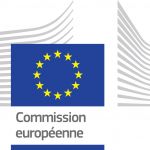BACKGROUND AND OBJECTIVES
During the Conference on the Future of Europe, citizens expressed the need to increase their participation and involvement in European democracy and the desire for their aspirations and opinions to be more consistently considered outside of electoral periods. In response, the European Commission launched its first European Citizens’ Panel in Brussels in December 2022, focusing on the issue of food waste. Two more panels followed in 2023: the second one on virtual worlds and a third one on mobility for educational and learning purposes.
The objective of these new panels was to enable citizens to collectively deliberate on key areas prior to the European legislative process.
Within the framework of the Food Waste Panel, citizens identified and formulated recommendations to Member States as part of a European directive proposal. They identified 23 recommendations and three main lines of action aimed at: 1) strengthening cooperation in the food value chain, 2) encouraging initiatives from companies in the food sector, and 3) supporting changes in consumer behavior.
The Virtual Worlds Panel presented a different challenge as it involved working together on an entirely new initiative related to virtual worlds. While it was not a legislative text per se, the issue was nonetheless significant, as the panel’s results contributed to the EU’s initiative on Web 4.0 and virtual worlds proposed by the Commission. The citizen panel thus produced a set of guiding principles and 23 recommendations concerning the development of virtual worlds in the EU, based on their experiences, perceptions, and hopes for the future.
The Mobility for Learning Panel was part of a broader consultation strategy aimed at gathering input and proposals from all stakeholders to make mobility for learning more accessible. The panel’s work resulted in a list of 21 recommendations, which informed the Commission’s efforts regarding the Council’s recommendation on mobility for learning.
TERMS OF THE ASSIGNMENT
Within an international consortium, Missions Publiques oversaw various stages of the Panels:
- Design of the deliberative process: Missions Publiques was responsible for co-designing a unique deliberative process for each panel that met the expectations and needs of each topic. Future Search, theater, photolanguage, reverse conference, gamification: each panel also served as an opportunity to innovate and find new ways to engage in discussions together, in a multicultural and multilingual context.
- Support for the steering committee: Missions Publiques and its partners were also responsible for establishing, coordinating, and supporting the work of an expert committee tasked with monitoring and advising on the implementation of the deliberative process, particularly regarding the scientific aspects related to the various panel topics.
- Panel facilitation: Missions Publiques took on the role of facilitating and animating a portion of the panels.
Key figures
ADDED VALUE
Building on the momentum of the Conference on the Future of Europe, European Citizens’ Panels have now become an integral part of the European policy-making process. In 2023 and 2024, nearly 450 citizens from the 27 European Union countries deliberated, both in Brussels and online, on these three topics. Panels are now a fully established component of the European Commission’s toolkit for participatory initiatives.

- Final Report Food Waste Panel: https://citizens.ec.europa.eu/food-waste-panel_en
- Final Report Virtual Worlds Panel: https://citizens.ec.europa.eu/virtual-worlds-panel_en
- Final Report Mobility for Education and Learning
Coordination: Missions Publiques, Ifok, DBT, Deliberativa



